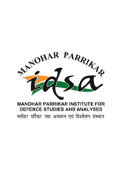Home » Strategic Analysis
Hamas–Israel War and the Evolution of Iran’s ‘Resistance Geopolitics’
- Deepika Saraswat |
- January-February 2024 |
- Strategic Analysis
Super Powers and Arab-Israeli Conflict
- Christopher S. Raj |
- January-February 2024 |
- Strategic Analysis







